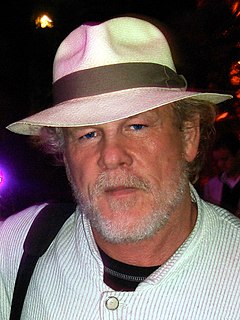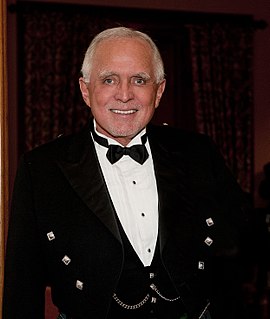A Quote by Warren G. Bennis
Some of the strongest resistance to necessary change is the result of what Jim O'Toole has so aptly characterized as "the ideology of comfort and the tyranny of custom."
Related Quotes
I agree with O'Toole that custom and comfort are impediments to change. However, it is important to recognize that resistance to change is logical as well. The new "change masters" literature seems to take change as the norm. It isn't. Humans naturally see change as risky because it is risky, just as mutations in genes are mostly destructive. You would not want to go to work were everything changed every week! The phone system, the office assignments, who reports to who, and the whole set of job expectations.
Competition has never been more threatening than it is now. Innovative thinkers challenge the status quo in their organizations. They are often viewed as "troublemakers." They threaten the defenders of the status quo. So competition within an organization can also be brutal. The most effective leaders overcome "the ideology of comfort and the tyranny of custom" by being change agents themselves. They encourage and reward innovative thinking. I have observed that people only resist changes imposed on them by other people.
I discovered, to my amazement, that all through history there had been resistance ... and bitter, exaggerated, last-stitch resistance ... to every significant technological change that had taken place on earth. Usually the resistance came from those groups who stood to lose influence, status, money...as a result of the change. Although they never advanced this as their reason for resisting it. It was always the good of humanity that rested upon their hearts.
Nobody likes to change. There will always be resistance to change, and there always will be change. And the quicker you get to that, the easier it is. It's not such a difficult thing. If you entrench yourself and go, "By God, I will not change. I will not have this." Then, you're a dead man. We're great at adaptability. It's our strongest suit.
Assume a virtue, if you have it not. That monster, custom, who all sense doth eat, Of habits devil, is angel yet in this, That to the use of actions fair and good He likewise gives a frock or livery That aptly is put on. Refrain tonight, And that shall lend a kind of easiness To the next abstinence; the next more easy; For use almost can change the stamp of nature.
After meditating for some years, I began to see the patterns of my own behavior. As you quiet your mind, you begin to see the nature of your own resistance more clearly, struggles, inner dialogues, the way in which you procrastinate and develop passive resistance against life. As you cultivate the witness, things change. You don't have to change them. Things just change.
Every work of art (unless it is a psuedo-intellectualist work, a work already comprised in some ideology that it merely illustrates, as with Brecht) is outside ideology, is not reducible to ideology. Ideology circumscribes without penetrating it. The absence of ideology in a work does not mean an absence of ideas; on the contrary it fertilizes them.
Whatseems to take place outside ideology (to be precise, in the street), in reality takes place in ideology. What really takes place in ideology seems therefore to take place outside it. That is why those who are in ideology believe themselves by definition outside ideology: one of the effects of ideology is the practical denegation of the ideological character of ideology by ideology: ideology never says, 'I am ideological.'



































